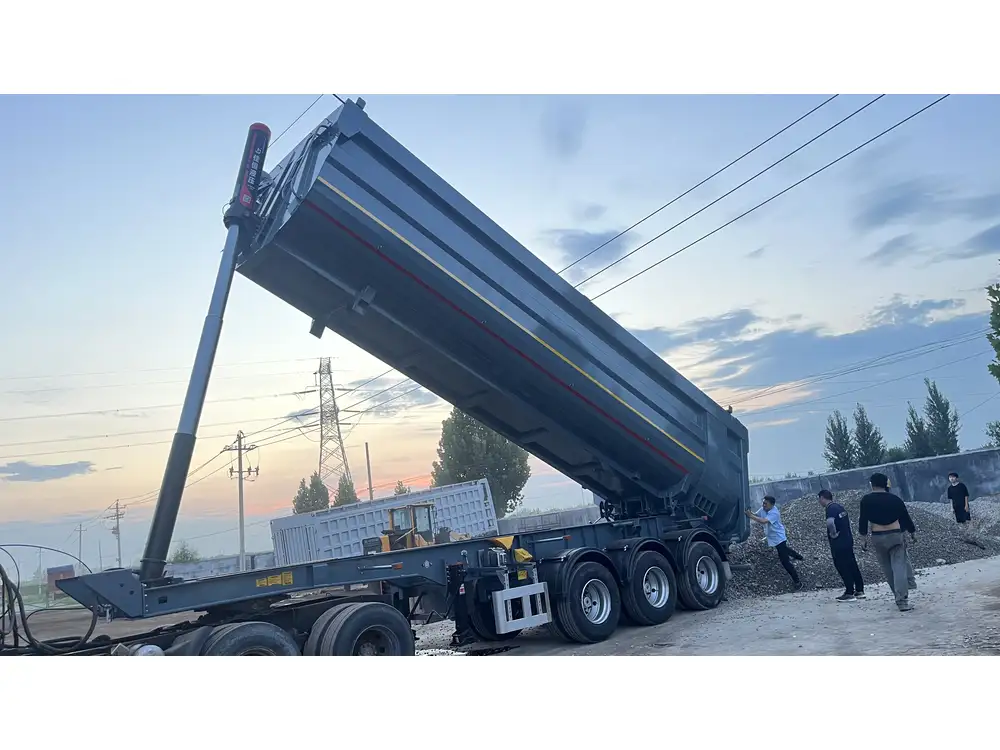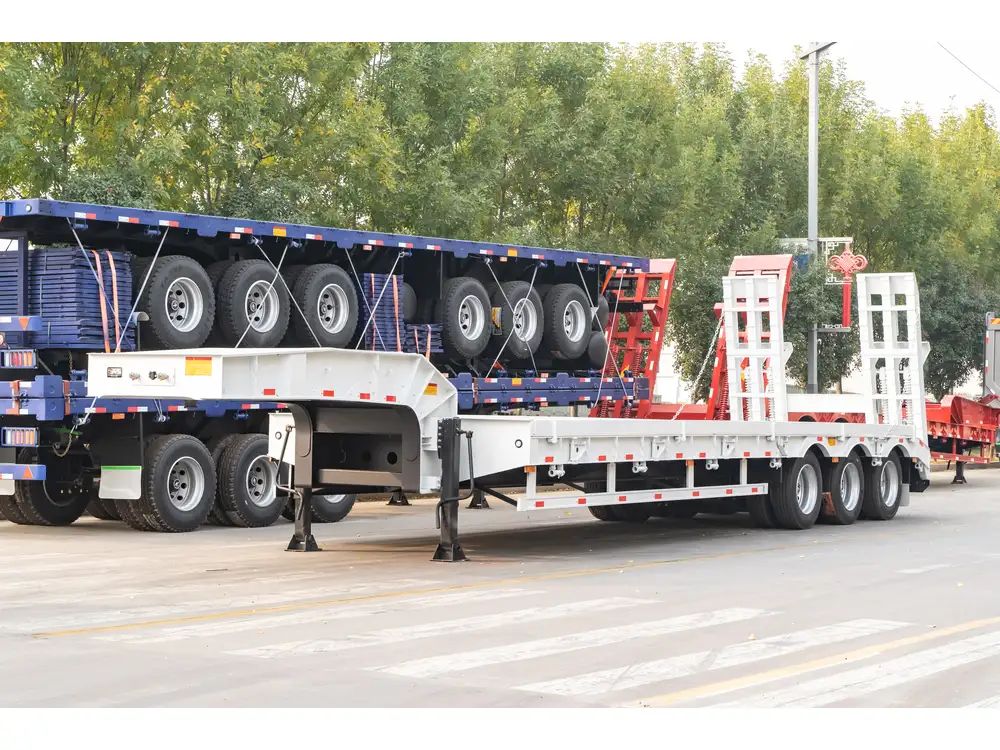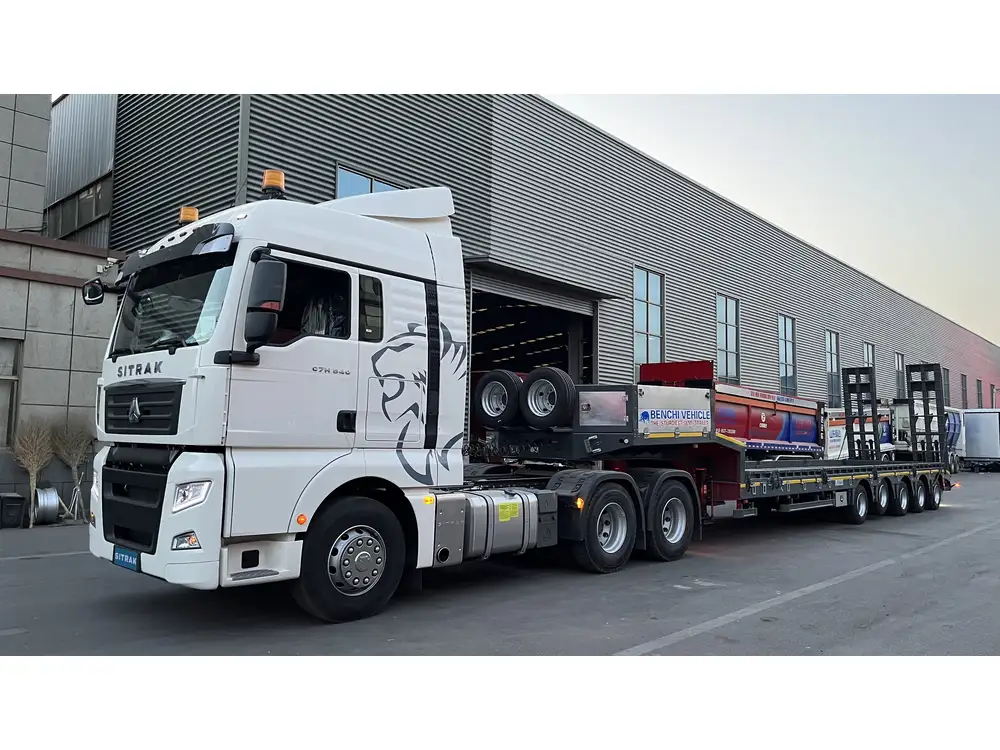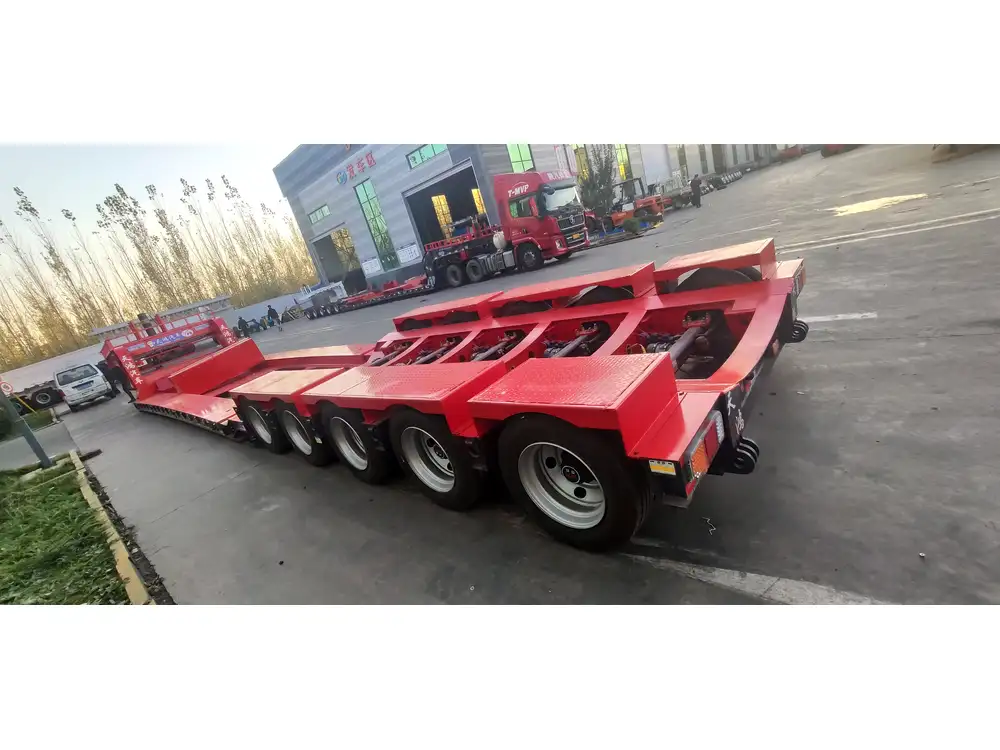In the world of logistics and transport, semi-trailers are the backbone of freight movement. Their operational efficiency directly impacts delivery schedules, operational costs, and overall safety on the road. Given the challenging conditions these vehicles endure – from heavy loads to rough terrains – understanding the nuances of servicing your semi-trailer becomes paramount. In this guide, we’ll delve deep into the factors affecting service frequency, provide actionable insights, and ensure your semi-trailer remains in optimal condition.
The Importance of Regular Servicing
Regular servicing of semi-trailers is not just a preventive measure; it’s an essential practice that can save time, money, and even lives. It keeps your vehicle compliant with legal standards, improves fuel efficiency, and extends the lifespan of the trailer. Ignoring maintenance can lead to catastrophic failures, substantial repair costs, and severe legal implications.
Benefits of Maintenance
| Benefit | Description |
|---|---|
| Safety | Regular checks reduce the risk of accidents caused by equipment failure. |
| Cost Efficiency | Proper maintenance can significantly decrease repair costs and improve fuel economy. |
| Legal Compliance | Servicing ensures adherence to transportation regulations and safety standards. |
| Longevity | Timely servicing extends the life of components, ensuring that your investment pays off. |
| Enhanced Performance | A well-maintained trailer performs better, leading to smoother transport and better delivery times. |

Key Components to Inspect During Service
To maintain the highest standards of safety and performance, certain components warrant rigorous inspection during each service. Here are the critical areas to focus on:
1. Tires and Wheels
Regularly inspect tire tread depth, pressure, and any signs of uneven wear. The tires are the only point of contact with the road, making them crucial for traction and handling.
2. Braking System
Brakes must be in peak condition to prevent accidents. Inspect air pressure, brake pads, and drums regularly. Air leaks or worn components can lead to brake failure, which is a leading cause of accidents.

3. Suspension System
Check the leaf springs, shock absorbers, and air suspension for wear. Poor suspension not only affects the ride quality but can also impact load stability.
4. Lights and Electrical Systems
Ensure all lights and electrical systems are functioning properly. Regular checks prevent malfunctions that can lead to road accidents or violations.
5. Chassis and Frame
Inspect for any signs of rust, cracks, or other damages. A compromised chassis can severely affect the trailer’s structural integrity.

6. Load Securing Equipment
Regular checks on load binders, straps, and tarps will ensure cargo safety. Properly secured cargo minimizes the risk of accidents.
7. Engine and Power Units
Considering that some semi-trailers have engine components, ensure that oil levels, filters, and hoses are in good condition to avoid breakdowns.
How Often Should You Service Your Semi-Trailer?
The frequency of servicing can vary based on several factors, including:
- Usage Intensity: How frequently and heavily the trailer is loaded.
- Environmental Conditions: Off-road usage or exposure to harsh conditions can necessitate more regular servicing.
- Manufacturer Recommendations: Always adhere to specific recommendations provided by the trailer’s manufacturer.
- Seasonal Checks: Certain weather conditions may necessitate additional inspections.

Standard Servicing Schedule
| Service Type | Frequency |
|---|---|
| Visual Inspection | Monthly |
| Basic Service | Every 6 months or 10,000 miles |
| Comprehensive Service | Annually or every 25,000 miles |
| Brake Inspection | Every 6 months or 5,000 miles |
| Tire Rotation | Every 10,000 miles |
Factors Influencing Service Intervals
Distance Travelled: A trailer logging significant miles may require more frequent servicing.
Type of Cargo: Heavy or hazardous loads can put extra strain on components, necessitating earlier inspections.
Driving Conditions: Trailers operated in challenging terrains may incur wear faster than those on maintained highways.
Seasonal Changes: Seasonal inspections can help prevent challenges posed by weather, from icy conditions affecting brake efficiency to road debris damaging tires.
Cost Implications of Neglecting Servicing
Ignoring regular maintenance can lead to escalating costs both in terms of direct repairs and indirect implications such as downtime. Below are key areas where costs accumulate due to neglect:
Emergency Repairs: Breakdowns often require immediate action, leading to higher repair bills.
Regulatory Fines: Non-compliance with safety regulations can incur hefty fines.
Increased Fuel Consumption: Poorly maintained trailers are less efficient, leading to higher fuel costs.
Reduced Resale Value: A neglected trailer will depreciate faster, impacting your overall investment.

Recommended Maintenance Practices
Enhancing the longevity and performance of your semi-trailer requires consistent, proactive maintenance practices. Here are some strategies to consider:
Employee Training
Educate drivers and maintenance personnel on the importance of daily checks and what signs to look for during pre-trip inspections. A well-informed team can identify problems early and address them efficiently.
Utilize Tracking Technology
Consider using telematics and other monitoring technologies to keep tabs on trailer performance and component conditions. Data-driven insights can pinpoint when servicing should take place based on actual usage patterns.

Create a Maintenance Log
Keep a comprehensive log of all service activities. This practice is not only essential for historical records but also useful for future servicing plans and resale considerations.
Engage Professional Services
For complex issues or comprehensive inspections, engage certified technicians who specialize in semi-trailer servicing. Their expertise ensures that all aspects are thoroughly checked and addressed.
FAQs About Semi-Trailer Servicing

How do I know if my semi-trailer needs immediate service?
There are several indicators that your semi-trailer may require immediate attention, including unusual noises, braking performance changes, visible leaks, or dashboard warning lights.
Can I perform the service myself?
While basic maintenance tasks can be done by operators, comprehensive inspections and critical repairs should be left to qualified technicians to ensure safety and compliance.
Is there any legal requirement for servicing semi-trailers?
Yes, many jurisdictions require regular inspections and maintenance as part of road safety regulations. Failing to comply can result in penalties or restrictions.

What should I do if my trailer fails inspection?
Immediately address any issues identified during the inspection, following up with a qualified technician. Failure to rectify problems can lead to legal repercussions and safety hazards.
Conclusion: Prioritizing Servicing for Optimal Performance
Understanding the importance and frequency of semi-trailer servicing is crucial for any logistics or transportation operation. By adhering to a meticulous service schedule and employing best practices, we can ensure that our semi-trailers remain safe, efficient, and compliant. The benefits of regular maintenance extend beyond operational efficiency; they impact safety, costs, and the longevity of our assets. Let’s commit to proactive servicing and ultimately enhance the reliability of our transportation fleet.



